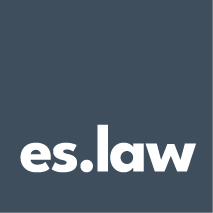Counterfeiting legal documents (Sec 223 StGB)
Any person who produces a false legal document or forges a genuine legal document with the intention that the document is used in legal dealings to prove a right, a legal relationship or a material fact is liable for counterfeiting legal documents.
Any person who uses a false or forged legal document in legal dealings to prove a right, a legal relationship or a material fact is also liable.
Legal documents as the object of the offense
The object of this offense is a legal document. A legal document is a “writing” that has been drawn up to establish, amend or revoke a right or legal relationship or to prove a fact of legal significance.
The following features characterize a “legal document” in the sense of criminal law:
- Written declaration of ideas: The legal document itself must contain intellectual content that has been recorded in the required written form.
- Legal relevance: The legal document must have been drawn up in order to establish, amend or revoke a right or legal relationship or to prove a fact of legal significance.
- Recognizability of the issuer: The legal document must be attributable to an author. This can be either a natural person or a legal entity.
Examples of legal documents
Important legal documents in business life are, for example, official applications, reports or other documents, bank statements, credit card receipts, delivery bills, order slips, contracts, transfer orders, invoices, salary confirmations, employment confirmations, letters of termination and reminders, business correspondence, completed forms, receipts, postage slips, etc.
Criminal act
The offense of counterfeiting of legal documents consists of forging a document or falsifying an existing document.
Forgery is the production or creation of a false document that does not actually originate from the issuer from whom it appears to originate. The perpetrator misrepresents the identity of the issuer of the legal document. The use of someone else’s letterhead alone can therefore constitute forgery.
In the case of falsification, on the other hand, the perpetrator changes the intellectual content of an existing genuine legal document issued by another person without authorization. The perpetrator must therefore give the impression that the altered content originates from the issuer.
In addition to the generally required contingent intent, the perpetrator must also have the extended intent that the document will be used in legal context to prove a right, a legal relationship or a fact. Anyone who does not intend to deceive in legal transactions, but only in the area of interpersonal or social relationships, does not act with the offense-specific extended intent and is therefore not liable to prosecution for counterfeiting legal documents. In addition to forgery and falsification, the corresponding use ofa false or falsified document is also punishable under Sec 223 para 2 StGB. Such use consists of the perpetrator making the document available as proof of a right, a legal relationship or a fact.
Examples of counterfeiting legal documents
- The managing director of a limited liability company forges a payment confirmation in order to be able to present it to a supplier in legal transactions.
- A potential borrower falsifies the net salary on the payslip in order to improve his negotiating position when applying for a loan from a bank.
A distinction must be made between a false deed and a lie deed (Lugurkunde). This is the case when a declaration with incorrect content comes from the correct issuer. Although a false document does not constitute forgery, it may under certain circumstances constitute forgery of evidence (Sec 293 StGB) if used in this way.
Counterfeiting specially protected legal documents (Sec 224 StGB)
Counterfeiting specially protected legal documents is a special form of counterfeiting legal documents. According to Sec 224 StGB, anyone who commits one of the acts punishable under Sec 223 StGB in relation to a domestic public legal document, a foreign public legal document that is equivalent to a domestic public document by law or international agreement, a will, or a security other than those listed in Sec 237 StGB is liable to prosecution.
Domestic public documents are those documents which an Austrian official has drawn up in the prescribed form within the scope of his official powers or a person of public faith within the scope of the powers conferred on him by law and on the authenticity of which the general public may therefore place particular trust. These include, for example, driving licenses, official identification documents such as passports, police or court interrogation records, judgments of Austrian courts or decisions of Austrian authorities.
The prerequisite for qualification as a domestic public documents is that it has been drawn up in the appropriate form within the framework of public administration. This means that mere records and notes that only serve internal administrative purposes are not “domestic public legal documents”.
Even the preparation of counterfeiting of public legal documents is punishable under Sec 227 StGB.
Examples
- The perpetrator falsifies a notice from an Austrian authority in order to be able to present it as part of a due diligence review in the event of a company sale.
- The perpetrator presents a forged driver’s license when he is checked by the police.
Forgery of data (Sec 225a StGB)
The forgery of data is not covered by the criminal offense of counterfeiting legal documents, but by that of forgery of data.
Forgery of data is committed by any person who produces false data by entering, changing, deleting or suppressing data with the intention that the data be used in legal dealings or to prove a right, a legal relationship, or a material fact.
The offense of forgery of data protects the authenticity and reliability of electronic documents, which is not covered by counterfeiting legal documents. The offense concerns the forgery and falsification of computer data that are not documents due to the lack of (printed) written form.
The object of the offense is therefore false data within the meaning of Sec 74 para 2 StGB, i.e. personal and non-personal data and programs. This data must be intended for legal transactions and its issuer must be identifiable.
The input, modification, deletion or suppression of data can be considered as a criminal act.
To fulfill the criminal offense of data forgery, the perpetrator must also – in addition to the generally required contingent intent – act with extended intent that the electronic document will be used in legal transactions to prove a right, a legal relationship or a fact.
Examples
- The perpetrator modifies tax office files relating to tax data or the time of sending an e-mail in the e-mail header in order to present them as proof of a timely withdrawal from a contract with a business partner.
- Anyone who uses false data (Sec 225a StGB) to deceive, e.g. by giving a false name when ordering online, may be liable to prosecution for serious fraud (Sec 146, 147 para 1 no 1 fourth case StGB) if a financial loss occurs.
Penalties
The penalty for counterfeiting legal documents under Sec 223 StGB and data forgery under Sec 225a StGB is a prison sentence of up to one year or a fine of up to 720 daily rates.
However, anyone who commits counterfeiting of specially protected legal documents under Sec 224 StGB is liable to a custodial sentence of up to two years.
Compliance measures to reduce the risk of document offenses
A wide range of measures can be taken in day-to-day business to proactively reduce the risk of counterfeiting legal documents and data forgery. Compliance measures are proving to be the key to secure and proper business processes.
Training courses and workshops for employees are a central starting point for training employees in the detection of document forgeries and sensitizing them to security measures. Employees should also be made aware of the criminal and employment law consequences of falsifying or even creating false documents. A “tone from the top” zero tolerance policy should be implemented.
In addition, strict control mechanisms and protocols should be implemented in day-to-day business to prevent the falsification of important documents.
Criminal defense by a lawyer in cases of accusations of counterfeiting legal documents or forgery of data
If you are accused of forging a document or falsifying data, you should quickly consult a lawyer specializing in criminal law. A lawyer will first examine the facts of the case and analyze the evidence in detail. This enables him to develop a targeted defense strategy in the course of the criminal defense and uncover possible weaknesses in the accusations. In addition, a lawyer supports his client in asserting and enforcing his rights in order to achieve the best possible outcome of the criminal proceedings.




